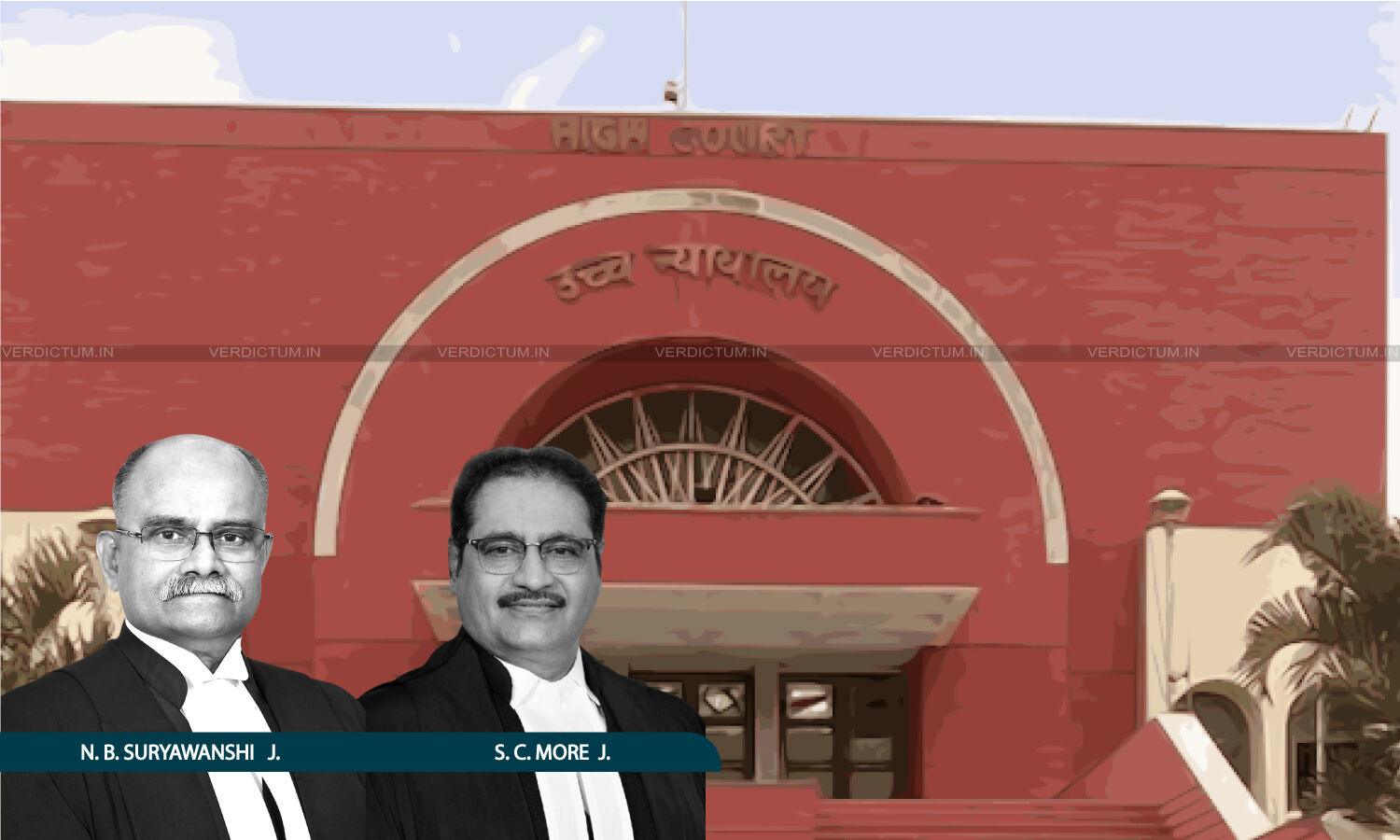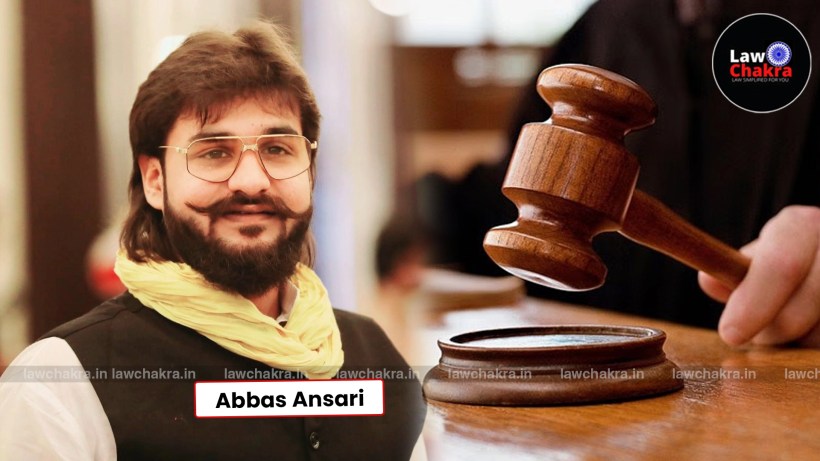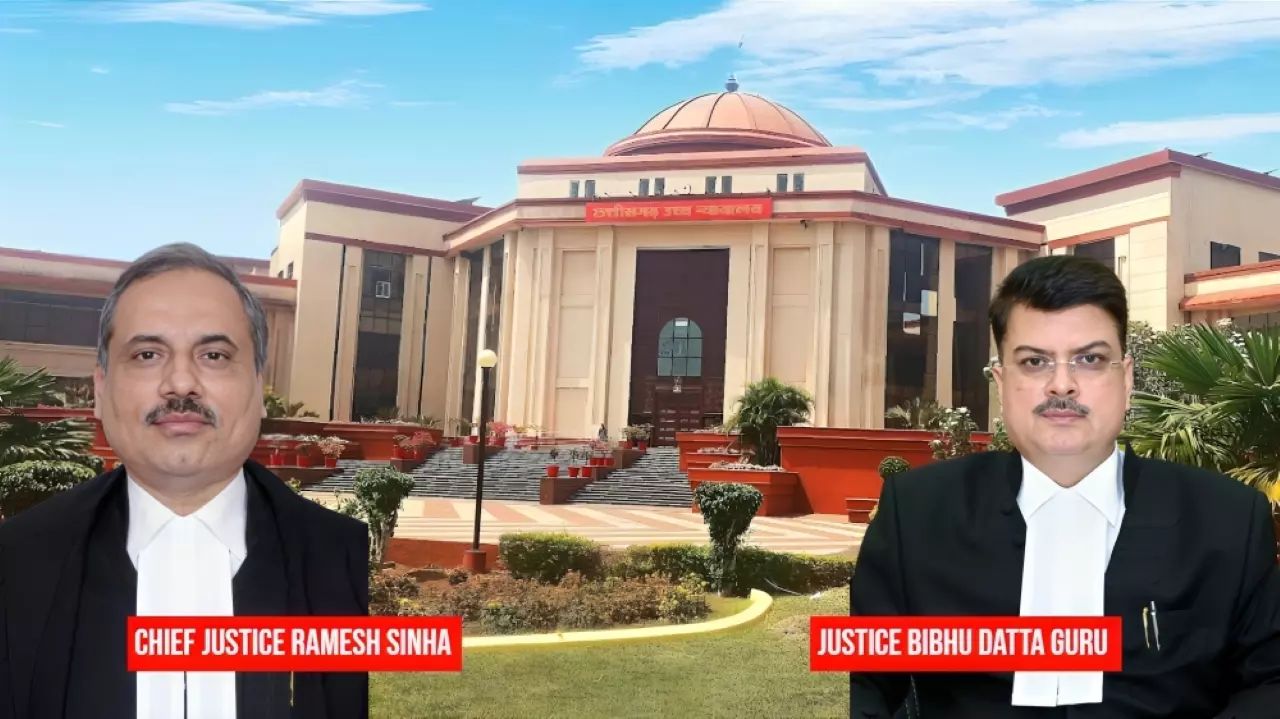Bombay High Court Upholds Conviction Of Man For Killing Mother-In-Law; Says Use Of Tile, Knife And Wooden Plank Shows Clear Intention To Cause Death

The Bombay High Court (Aurangabad Bench) has upheld the conviction of a man under Section 302 IPC for killing his mother-in-law, rejecting the contention that the offence should fall under Section 304 Part II. The Court held that the sustained and deliberate attack using multiple weapons, a tile, a wooden plank, and a knife, indicated a clear intention to cause death.
A Division Bench of Justice Nitin B. Suryawanshi and Justice Sandipkumar C. More observed, “It is not the case of prosecution that after altercation with the deceased, the accused had given only single blow resulting into the death. On the contrary, it has been established that the appellant/accused assaulted the deceased i.e. an old lady mercilessly by three articles namely piece of tile, wooden plank and knife. As such, this cannot be a case involving death due to single blow.”
The Court added, “The manner in which the accused assaulted the deceased with predetermination definitely indicates that he is guilty of the offence of murder and not culpable homicide.”
Advocate Sohel Siddiqui appeared for the Appellant, while Additional Public Prosecutor S.N. Deshmukh represented the Respondent.
Brief Facts
The Appellant was convicted by the trial court under Section 302 IPC for killing his mother-in-law. The Appellant was married with six children, and his wife had left the matrimonial home after repeated instances of domestic violence and was residing at her mother’s house. The Appellant followed her there, and the victim’s daughter avoided returning home that night out of fear.
According to the prosecution, the deceased was attacked late at night. The victim’s grandson, a 10-year-old child, witnessed the incident, and later informed his mother, who returned home to find her mother lying dead in a pool of blood. The police were informed, and the Appellant was arrested. A charge sheet was filed under Section 302 IPC, and the Trial Court found him guilty and sentenced him to life imprisonment.
The Appellant contended that the conviction was based solely on the testimony of a child witness and that the incident, if true, amounted at most to culpable homicide not amounting to murder. He argued that there was no intention to kill and sought modification of the conviction to one under Section 304 Part II.
Reasoning of the Court
The High Court rejected the Appellant’s argument and upheld the Trial Court’s appreciation of evidence. The Court found the testimony of the 10-year-old child, who was an eyewitness, to be natural and trustworthy, and had clearly described how he saw the Appellant assaulting the deceased using a tile, then a wooden plank, and later a knife.
The Court observed, “This witness has specifically stated that he did not raise any alarm as he feared that the accused would also kill him. Thus, the reason for not raising alarm at the time of incident is quite justified.”
On the allegation of tutoring, the Court found no merit. “A suggestion is given to this witness that he was already told or taught as to how he should depose before the court. However, this witness has straightway denied such suggestion and stated that he was never taught by anyone and that he himself deposed the facts which he actually saw”, the Court noted
The forensic and medical evidence corroborated the testimony. Human blood was found on the tile, plank, and knife. The cause of death, as per the postmortem report, was head injury caused by a hard and blunt object. The Court noted that the tile used in the offence was recovered at the instance of the Appellant.
The Court also referred to CCTV footage that placed the Appellant near the crime scene. Though the defence challenged the validity of the Section 65B certificate, the Court held that the footage was only corroborative and not essential for conviction.
Rejecting the argument for application of Section 304 Part II, the Court observed that the assault was not a sudden act but a brutal, premeditated attack using multiple weapons. The Bench observed, “…it is extremely important to note that it is not the case that accused assaulted the deceased with knife which was in the house of deceased itself. On the contrary, it is established that the accused had in fact carried knife with him. Therefore, the manner in which the accused assaulted the deceased with predetermination, definitely indicates that he is guilty of the offence of murder and not culpable homicide. Therefore, considering all the evidence on record, it has been established that the appellant / accused is guilty of murder i.e. the offence punishable under Section 302 of I.P.C. and considering the same no benefit of doubt can be extended to him on re-appreciation of evidence.”
Consequently, the Court dismissed the appeal, upholding the decision of the Trial Court, and confirming the Appellant’s conviction under Section 302 IPC.
Cause Title: Vijay Kishan Dhillod v. State of Maharashtra (Neutral Citation: 2025:BHC-AUG:15846-DB)





